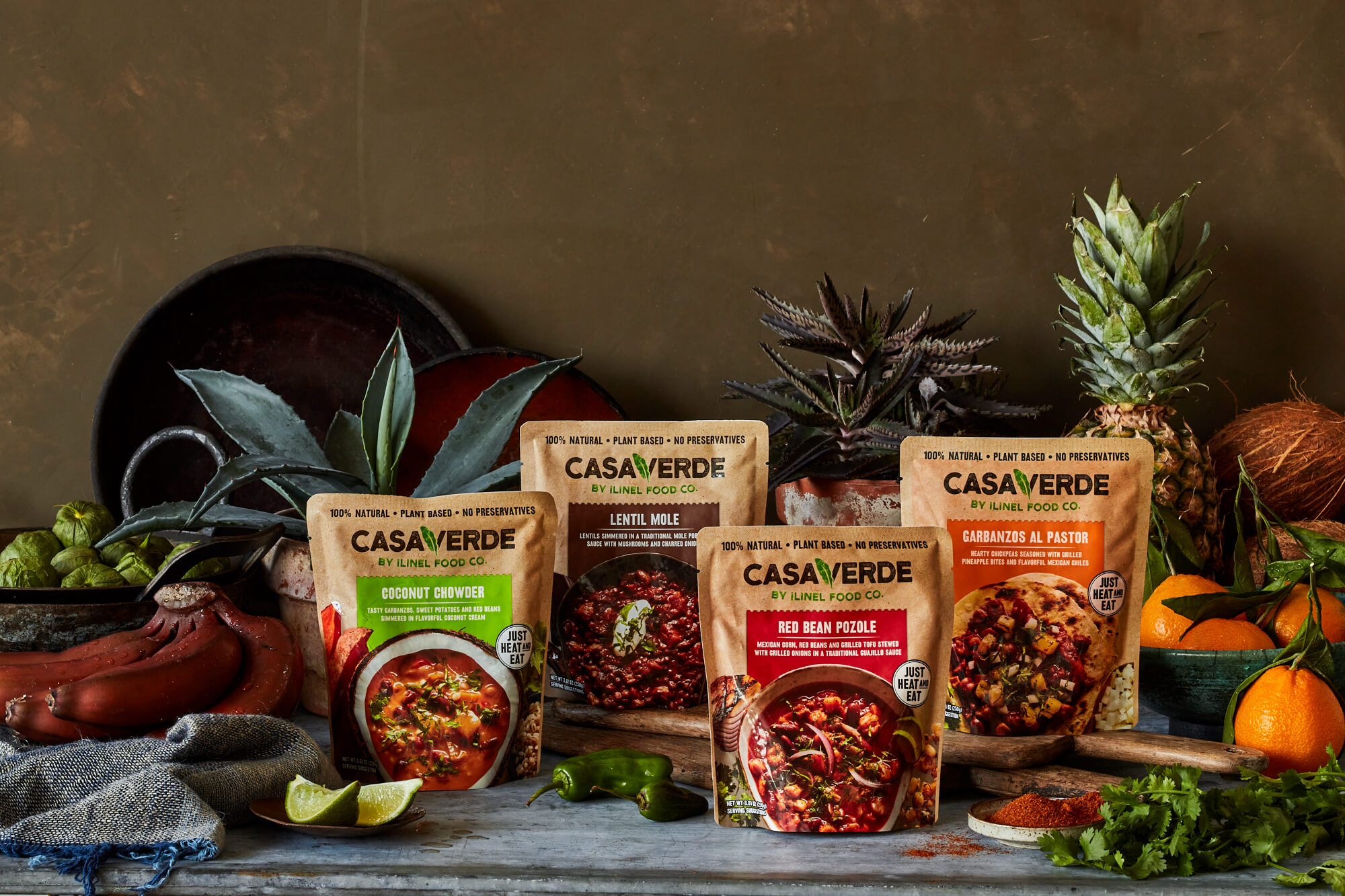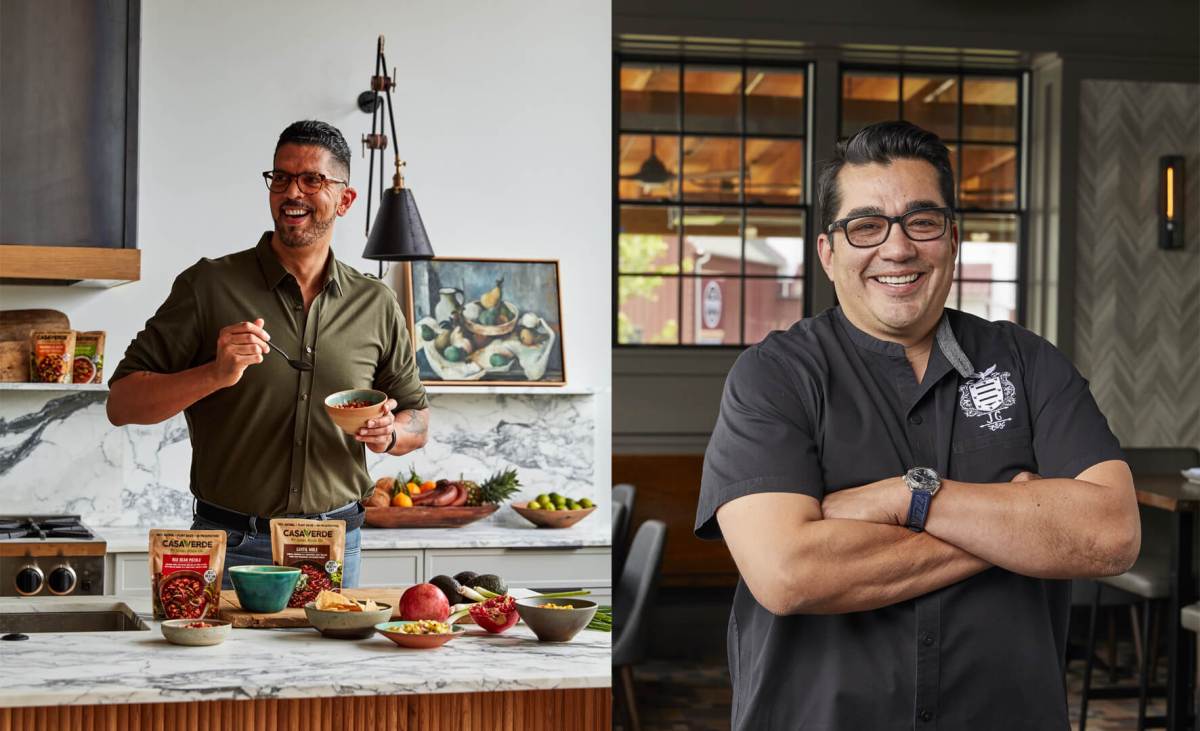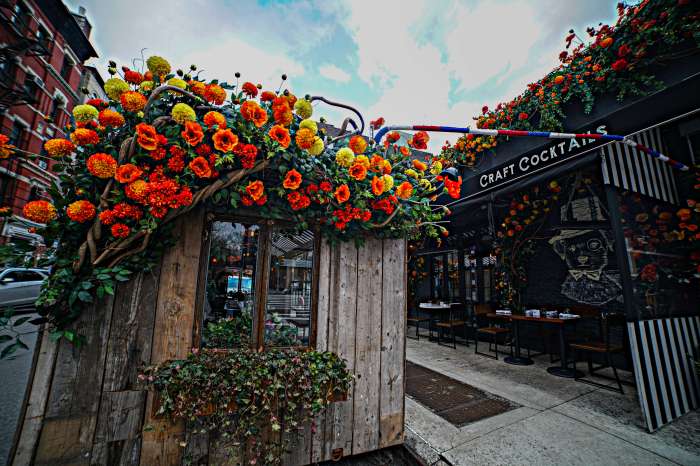A New York-based company is bringing a new twist to classic Latin American dishes while making them ready-to-eat and affordable.
Casa Verde is a food company that aims to make delicious, wholesome, and convenient ready-to-eat plant-based Latin American meals. Founded by Harry Lewis, the idea to create Casa Verde came after going on sabbatical from his marketing job at Stella Artois.
“I think in the last two years I started losing track of what’s really important. In that corporate hamster wheel that is just spinning on, I saw my health deteriorate and my mental health as well — I was constantly irritated, tired, and not sleeping very well,” said Lewis. “I decided to take a break in my life and actually realized that if I don’t take the reins, I would keep letting the boss or other people make the decisions. I decided to take a sabbatical and went to southeast Asia. I went to Vietnam, Cambodia, Bali, Singapore, and I started seeing a lot of the benefits of eating well.”
During his time in southeast Asia, Lewis saw that many of these countries use a plant-based protein as the focal point of the meal. He decided to go back to his own Latin American roots and visited his home country of Guatemala, plus Mexico, Ecuador, Brazil and Colombia to see how it compared.
“I started seeing how the Asian culture is all about vegetables, vegan sourced protein, and a more healthier lifestyle in terms of relationship with food. I came to Latin America and I saw that for us and Americans, every dish is really heavy in meat and it was a big difference,” said Lewis. “When I came back after some months, everything like tacos, tamales, everything is really heavy on meats. It started occurring to me, what if we started reinventing Latin dishes but prepared with plant-based?”
Though he was met by opposition from those around him, this only motivated Lewis more to pursue creating plant-based Latin dishes. He teamed up with Iron Chef Jose Garces to create a menu of Latin meals that could translate into plant-based.
“I’ve been a chef in the industry for over 25 years. I am Ecuadorian-American, my parents immigrated from Ecuador in the late 60s and I was born in Chicago but grew up in a Latin American lifestyle. I’ve written a few books about Latin food and I’ve had huge exposure to Latin cultures and cuisines,” said Garces. “What I attempted to do was look at some staple Latin meals that typically have animal protein in them and try to translate them over.”
The two began to collaborate and research, with both Lewis and Garces tapping into their roots to find recipes that would work best for Casa Verde, as well as seeing what is available in vegan restaurants and grocery stores. Once they had some ideas kicking around, it was into the test kitchen to start messing around with recipes to see what worked.
“In thinking about it, naturally you’d think it would be difficult to do. But I found in the journey of creating the recipes subbing out more heartier vegetable-based proteins like garbanzo beans, red lima beans, those sort of heartier protein-based legumes and grains, that really did it. You still had that sensation of sustenance with the flavor,” said Garces. “Once I started cooking the food and realizing that wow, this really does taste like my Brazilian chowder, it really does have the coconut and habanero flavor. But with the sweet potato and beans, I’m getting the sustenance that we need. So I think that was really the key for me was taking what is a concept and adding these hearty vegetables to it and making sure the flavor is right.”

Together, the pair came up with ten recipes that were tested among university students and rated on everything from flavor, spiciness, look and feel, texture, and packaging design. There were six clear winners, four of which Casa Verde launched with: Coconut Chowder, Garbanzos Al Pastor, Lentil Mole, and Red Bean Pozole.
“The goal was to also appeal to a Latin American market, so we wanted to take these things that are maybe you grew up with, you were familiar with and put our plant-based spin on them,” said Garces. “I think that’s an easier entry than creating something fresh and new. That’s not to discount that in the future, I think we will ultimately head in that direction.”
Casa Verde officially launched sales online in January 2022 with the four meals available to ship across the country. The meals come in sustainably packed pouches that can be heated up in the microwave or on the stove, with the option to eat it alone or however you choose to prepare it, with rice or even adding in animal protein if you desire it.
So far, the reception has been very positive despite being so new, especially among Lewis’ friends and family.
“The reaction has been pretty positive because same as in Latin America, for Americans, Latin food is heavy, it’s greasy, it’s not healthy,” said Lewis. “It’s heavy in meat. All that we’re wanting to break that cycle and create something unique.”
Lewis says that in March, Casa Verde is expected to start to hit the shelves of bodegas and natural and organic food stores, but the company really wanted to put emphasis on selling online first.
“For the first three months we want to put a lot of emphases online because you really get to know who’s buying from where, what are the best sellers,” said Lewis. “You are able to get a lot of information, and I feel for a product it is very important that we really know who’s buying us, when are they eating, what are they buying, what are their comments, and through social media and the website we get a lot of good data on who is rebuying.”
This coming summer, Casa Verde plans to add two more dishes to their lineup: from Peru, an Aji made with garbanzo beans and lentils, and a Caribbean jerk mushroom dish. The team at Casa Verde is also in the process of working on dishes that could be made available in the future.
“I got really excited by the end result, going into it was a pretty blank slate, so I’m excited about what we could do in the future. There are more in development that is more ready. Beyond that, we’re going to work on other ideas as well,” said Garces.
Casa Verde is committed to not only creating a brand that makes a delicious product but also gives back to the community at large. For every case of meals they sell, Casa Verde is donating four meals to local shelters and communities in need.
“I am a firm believer that as marketers and as a company, we have a responsibility to extend forward something bigger and embrace something with more meaning than selling a product,” said Lewis. “Our purpose is nurturing America with Latin American food. We made a commitment that for every case sold, we give four meals to local shelters, communities in need. So when we say nurture America, we embrace that and want our company to be purposeful and give back to a big country that opened doors to us.”
For more information or to order Casa Verde, visit eatcasaverde.com.




































